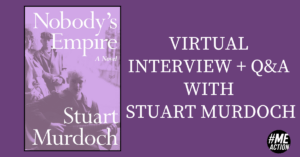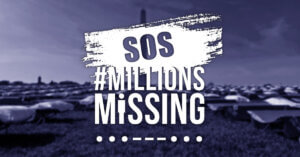|
|||||||||||||||||||
|
|||||||||||||||||||
|

Writers Guild Initiative Writing Workshops: Apply Today
#MEAction is excited to announce we are partnering with the Writers Guild Initiative (WGI) again to offer creative writing workshops for people with ME and Long COVID**. WGI has graciously donated their time to offer these writer workshops through personal mentorship with the writers of the #MEAction community! The workshops consist of three sessions during











4 thoughts on “Canary in a Coal Mine at Good Pitch New York”
Excellent news, (smiling broadly since a few lines into the article ), the VR sounds interesting and of course I am looking forward to the film, best of health to those involved.
), the VR sounds interesting and of course I am looking forward to the film, best of health to those involved. 
Big congrats to getting into this select crowd and making all those contacts and the opportunities they may bring!
This is the best news I’ve heard in a while! Thank you so much Jen and everyone who has worked tirelessly on this film and the surrounding campaign. I may have started to cry when I saw the picture of everyone clapping in sign language, how lovely for an entire audience to be so considerate and welcoming to someone with ME.
Thank you so much and well done!
I am so excited about this documentary and hope to see it on TV and in theaters. I’m 75 and have had ME for over 30 years. Although I have the moderate form, it totally ruined the life I had planned for my career and retirement. I was lucky to earn pensions since I was 44 when I got sick. Regardless, with a husband battling bipolar and spending anything we managed to save, there was little left for our “golden years.” I lost him 3 years ago and live alone in a senior setting fighting depression as I’m an hour away from family and friends. I can no longer drive long distances. But I continue as the editor of a local ME/CFS/FM support group newsletter and will continue as long as my fingers work. I told my story above to show that even moderate ME can ruin your life.
But we must, must, must make some headway now for those severely affected and are bedbound, housebound, etc. Life may not be fair but it definitely downright despicable for people with severe ME. I’m sure this wonderful film will help to do that in a large way. I hope people will donate whether big or small – I’m sure every dollar counts. I read this article thanks to #ME Action and was overjoyed!
Comments are closed.